
The politics of North Korea takes place within the framework of the official state philosophy, Kimilsungism-Kimjongilism. Juche, which is a part of Kimilsungism-Kimjongilism, is the belief that only through self-reliance and a strong independent state, can true socialism be achieved.
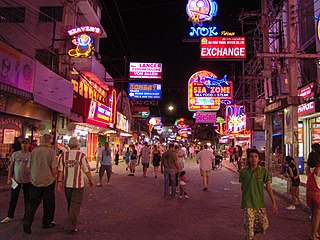
Prostitution in Thailand is officially illegal However, due to police corruption and an economic reliance on prostitution dating back to the Vietnam War, it remains a significant presence in the country. It results from poverty, low levels of education and a lack of employment in rural areas. Prostitutes mostly come from the northeastern (Isan) region of Thailand, from ethnic minorities or from neighbouring countries, especially Cambodia, Myanmar, and Laos. UNAIDS in 2019 estimated the total population of sex workers in Thailand to be 43,000.
The human rights record of North Korea is often considered to be the worst in the world and has been globally condemned, with the United Nations, the European Union and groups such as Human Rights Watch all critical of it. Most international human rights organizations consider North Korea to have no contemporary parallel with respect to violations of liberty.

After taking power in 1949, the Chinese Communist Party (CCP) embarked upon a series of campaigns with the aim of eradicating prostitution from mainland China by the early 1960s. Since the loosening of government controls over society in the early 1980s, prostitution in mainland China not only has become more visible, but can now be found throughout both urban and rural areas. In spite of government efforts, prostitution has now developed to the extent that it comprises an industry, one that involves a great number of people and produces a considerable economic output. Prostitution has also become associated with a number of problems, including organized crime, government corruption, hypocrisy, and sexually transmitted diseases. For example, a CCP official who was a major provincial campaigner against corruption was removed from his post and expelled from the party after he was caught in a hotel room with a prostitute.
Prostitution in South Korea is illegal, but according to The Korea Women's Development Institute, the sex trade in Korea was estimated to amount to 14 trillion South Korean won in 2007, roughly 1.6% of the nation's gross domestic product. According to a survey conducted by the Department of Urology at the Korea University College of Medicine in 2015, 23.1% of males and 2.6% of females, aged 18–69, had sexual experience with a prostitute.
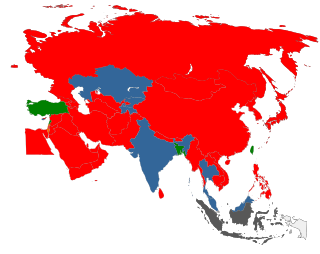
The legality of prostitution in Asia varies by country. There is often a significant difference in Asia between prostitution laws and the practice of prostitution. In 2011, the Asian Commission on AIDS estimated there were 10 million sex workers in Asia and 75 million male customers.
Forced prostitution, also known as involuntary prostitution or compulsory prostitution, is prostitution or sexual slavery that takes place as a result of coercion by a third party. The terms "forced prostitution" or "enforced prostitution" appear in international and humanitarian conventions, such as the Rome Statute of the International Criminal Court, but have been inconsistently applied. "Forced prostitution" refers to conditions of control over a person who is coerced by another to engage in sexual activity.How many women live through this type of abuse every day remains unknown.
Prostitution in Finland is legal, but soliciting in a public place and organised prostitution are illegal. According to a 2010 TAMPEP study, 69% of prostitutes working in Finland are migrants. As of 2009, there was little "visible" prostitution in Finland as it was mostly limited to private residences and nightclubs in larger metropolitan areas.
The Kippumjo or Gippeumjo is a collection of groups of approximately 2,000 women and girls reportedly maintained by the leader of North Korea for the purpose of providing entertainment, including that of a sexual nature, for high-ranking Workers' Party of Korea (WPK) officials and their families, as well as, occasionally, distinguished guests.
Prostitution in Greece is legal at the age of 18, and regulated. It is estimated that fewer than 1,000 women are legally employed as prostitutes and approximately 20,000 women, half of whom are of foreign origin and the other half are Greek, are engaged in illegal prostitution. Many women affected by the economic crisis have turned to prostitution through poverty.

The Ministry of State Security of the Democratic People's Republic of Korea is the secret police agency of North Korea. It is an autonomous agency of the North Korean government reporting directly to the Supreme Leader. In addition to its internal security duties, it is involved in the operation of North Korea's concentration camps and various other hidden activities. The agency is reputed to be one of the most brutal secret police forces in the world, and has been involved in numerous human rights abuses.
Prostitution in Malaysia is restricted in all states despite it being widespread in the country. Related activities such as soliciting and brothels are illegal. In the two states of Terengganu and Kelantan, Muslims convicted of prostitution may be punishable with public caning.

Prostitution in Malta is itself legal, but certain activities connected with it, such as running a brothel and loitering, are not. Certain offences are punishable by sentences of up to two years in prison. In March 2008, police and the Malta Ministry for Social Policy signed a memorandum of understanding to formalize a screening process for all arrested persons engaged in prostitution to determine whether they were victims of trafficking or other abuses. The law provides punishments of up to 6 years for involving minors in prostitution.
Prostitution in Mongolia is illegal but widespread in some areas. The Global Fund for Tuberculosis, HIV/AIDS and Malaria estimated there were about 19,000 sex workers in the country in 2006. Many women in Mongolia turn to prostitution through poverty.
Prostitution in Ivory Coast is legal, but associated activities, such as soliciting, pandering or running brothels, are illegal. Sex workers report law enforcement is sparse and corrupt. Police sometimes harass sex workers and demand bribes or sexual favours. Transgender prostitutes are often targeted by police and soldiers and subjected to violence. It was estimated in 2014 that there were 9,211 prostitutes in the country.
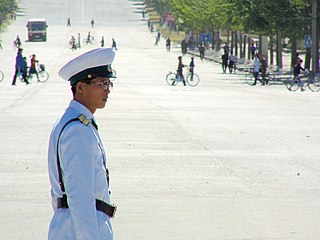
Crime is present in various forms in North Korea, officially known as the Democratic People's Republic of Korea (DPRK).
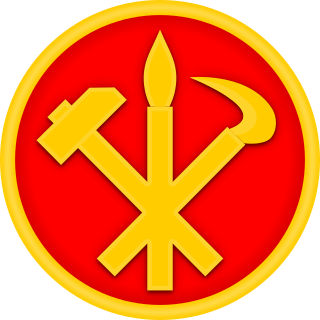
The Organization and Guidance Department (OGD), created in 1946, is a department of the Central Committee of the Workers' Party of Korea (WPK), the ruling party of North Korea. Its central responsibility is to implement the directives and teachings of the Suryeongs [Great Leaders], Kim Il Sung and Kim Jong Il. The department was initially a department within the WPK General Affairs Department, but eventually spun off and was established at the 3rd Plenary Session of the 2nd Central Committee as the Organization Committee.
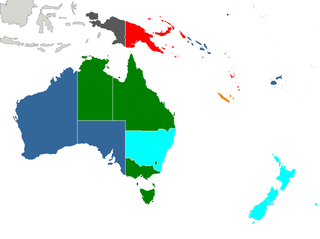
Prostitution in Oceania varies greatly across the region. In American Samoa, for instance, prostitution is illegal, whereas in New Zealand most aspects of the trade are decriminalised.
Prostitution in Guam is illegal but is practised covertly, especially in massage parlours. Although massage parlours are sometimes raided, generally the authorities turn a blind eye.
Sex trafficking in China is human trafficking for the purpose of sexual exploitation and slavery that occurs in the People's Republic of China. China, the world's second-most populous country, has the second highest number of human trafficking victims in the world. It is a country of origin, destination, and transit for sexually trafficked persons.









